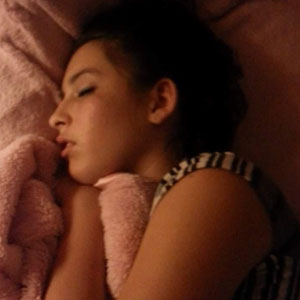By: Linda Burhans
 If you are a caregiver there is a pretty good possibility you did not get a complete and restful sleep last night. Many times caregivers enter my support groups clearly exhausted and sleep deprived. The importance of caring for caregivers cannot be minimized. Getting enough sleep is essential to caregivers for physical and mental health.
If you are a caregiver there is a pretty good possibility you did not get a complete and restful sleep last night. Many times caregivers enter my support groups clearly exhausted and sleep deprived. The importance of caring for caregivers cannot be minimized. Getting enough sleep is essential to caregivers for physical and mental health.
If you need to recharge yourself don’t rely on caffeine. A nap can boost your memory, cognitive skills, creativity, and energy level.
A 20 minute nap, sometimes called a power nap, is good for alertness and motor learning skills. In fact, research has shown that longer naps help boost memory and enhance creativity. Napping for 30 to 60 minutes is good for decision-making skills, while REM sleep, usually 60 to 90 minutes, plays a key role in making new connections in the brain and solving creative problems.
As caregivers we often refuse to take a nap because we feel like we have too much to do. A nap may be one of the most important things we can do for ourselves.
Napping also has psychological benefits. A nap can be a pleasant luxury, a minivacation. It provides an easy way to get some relaxation and rejuvenation. Relaxing and catching some z’s can be just as important as exercise and healthy eating.
As a napper you are in good company. Winston Churchill, John F. Kennedy, Margaret Thatcher, Albert Einstein and Thomas Edison are just a few to have known the value of an afternoon nap. They all claimed it helped them think more clearly.
I always encourage caregivers to ask for and accept help and to make a list of some things they can use help with when a friend or family member asks. One woman emailed me after attending one of my workshops. She said she thought about what I had said and decided to make a list. She then said she only put one thing on her list and that was if someone could come over any afternoon between 2 and 4 PM and let her take a nap that would be just wonderful.
Her exact words were, “And I am pleased as punch to tell you that I am now napping seven days a week and my husband is getting seven different visitors that had stopped coming. These naps have changed my life and have made my caregiving experience much more peaceful.”
So, I suggest you set up a daily routine for your nap. Find a quiet, restful place and take this time for you. Put a do not disturb sign on the door. I guarantee it will release some of the stress and improve your caregiving journey.